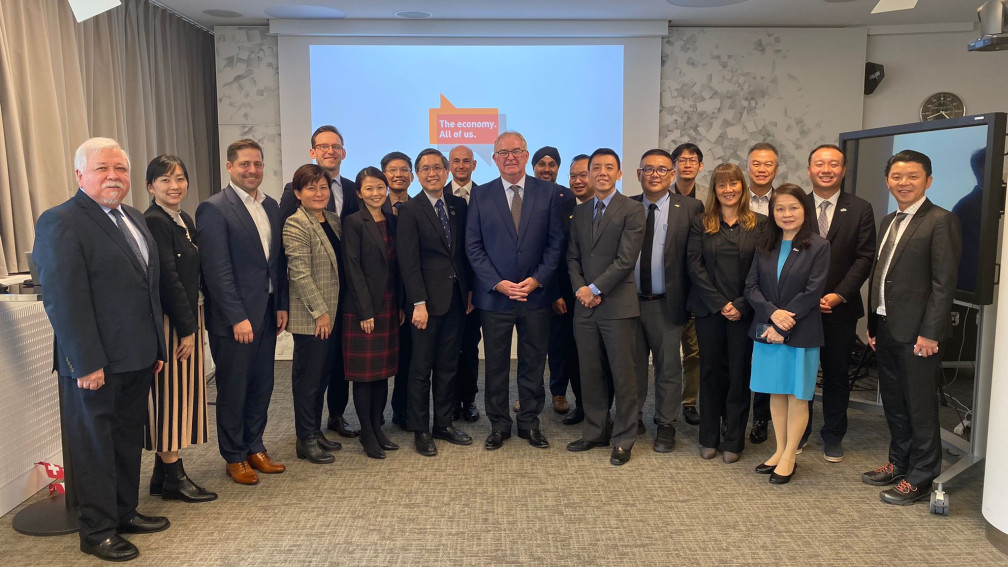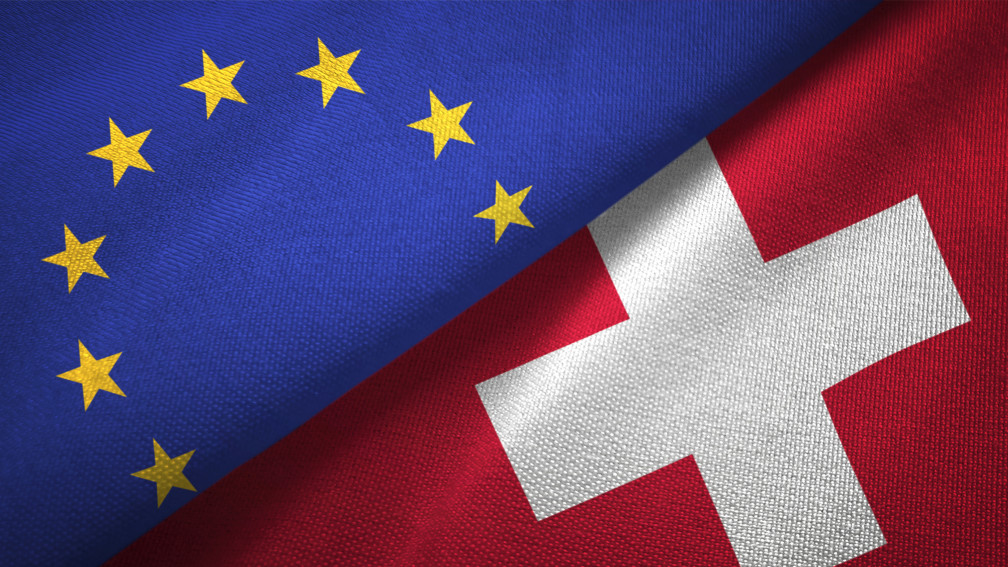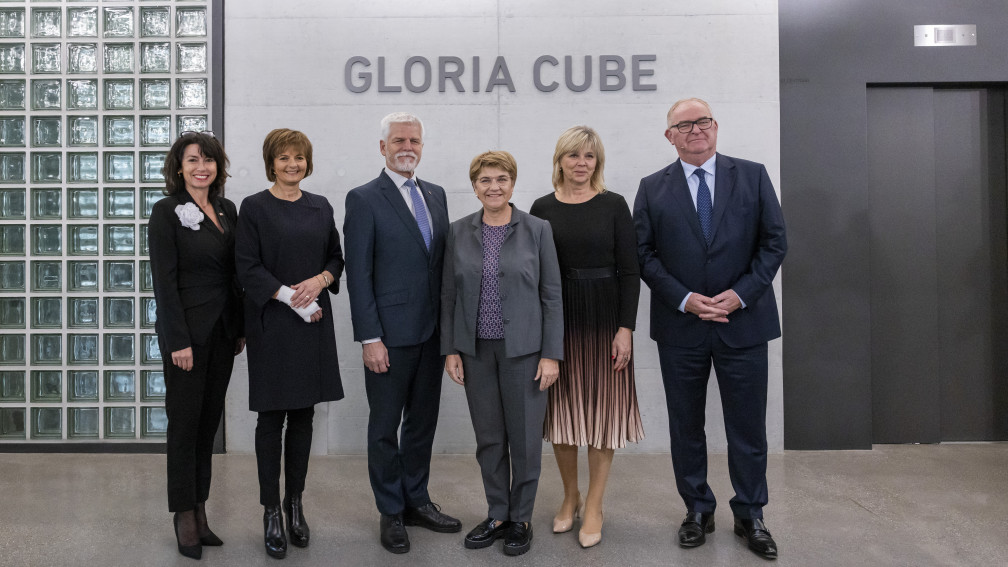
Swiss business in Saudi Arabia: opportunities and challenges in the context of Vision 2030
In brief:
- A 16-member Swiss business delegation traveled to Riyadh with SECO from November 27 to 28 for the 14th Joint Economic Commission Saudi Arabia – Switzerland.
- Saudi Arabia is in the midst of a far-reaching economic transformation process to reduce its dependence on oil. The major projects of Vision 2030 offer numerous opportunities for Swiss companies.
- The Swiss delegation was able to establish high-level contacts in various Saudi ministries.
From November 27 to 28, economiesuisse participated together with a 16-member Swiss business delegation in the 14th Joint Economic Commission (JEC) in Riyadh. The delegation was led by Andrea Rauber Saxer, Head of Bilateral Economic Relations at the State Secretariat for Economic Affairs (SECO). Representatives from industry, pharmaceuticals and banking were received by H.E. Sara Al-Sayed, Deputy Minister for International Relations at the Saudi Ministry of Investment (MISA).
Solution-oriented exchange
Saudi Arabia is currently Switzerland's second most important trading partner in the Middle East (after the United Arab Emirates) with a trade volume of around CHF 6.8 billion (including gold). More than CHF 6 billion of this is accounted for by Swiss exports. At the end of 2022, Swiss companies had also invested CHF 1.41 billion in Saudi Arabia.
With regard to the bilateral legal framework, the free trade agreement between the EFTA States and the Gulf Cooperation Council (GCC) was discussed, the implementation of which still needs to be improved. On the other hand, Swiss business, together with SECO, has spoken out in favor of the rapid conclusion of a new investment protection agreement (IPA).
Saudi Arabia in the midst of a fundamental transformation process
The 14th JEC was already the sixth official exchange between Switzerland and the desert kingdom in just two years – and to a certain extent a continuation of the official visit by Federal Councillor Parmelin this February. This intensification of bilateral meetings is no coincidence: Saudi Arabia is currently in the midst of a far-reaching economic transformation process with its Vision 2030. In order to reduce dependence on oil revenues, which still account for around 40 percent of GDP, a number of giga-projects are being implemented under the Saudi Crown Prince Mohamed Bin Salman. These include NEOM, a settlement project the size of Belgium in the northwest of the country, Qiddiya, a gigantic entertainment and sports project, and Riyadh Expo 2030. Saudi Arabia is expected to provide around 500 billion dollars for NEOM alone, mostly financed by the Saudi sovereign wealth fund (Public Investment Fund, PIF), which has around 904 billion dollars.
A dynamic market with opportunities, but local knowledge and networks are essential
Vision 2030 offers numerous opportunities for Swiss companies – in infrastructure, tourism, sport, entertainment, digital technologies, watches and jewelry, renewable energies, mining, water supply, healthcare and education. Some of the 100 Swiss companies present in Saudi Arabia are already involved in Vision 2030.
Saudi Arabia is actively seeking foreign investors to help finance the giga-projects. In view of the competition from the United Arab Emirates and Qatar, Saudi Arabia has decided to implement a whole series of measures. These include the Regional Headquarters (RHQ) program, under which public contracts will only be awarded to companies that have their regional headquarters in Saudi Arabia. This year alone, around ten Swiss companies have moved their regional headquarters to the Kingdom. In addition, Saudi Arabia has recently adopted the Economic Participation Policy (EPP), which requires economic participation in Saudi Arabia of at least 35 percent of the value of the imported content for certain public procurement contracts. Swiss companies planning to enter the Saudi Arabian market should be familiar with these new rules and not underestimate their complexity.










